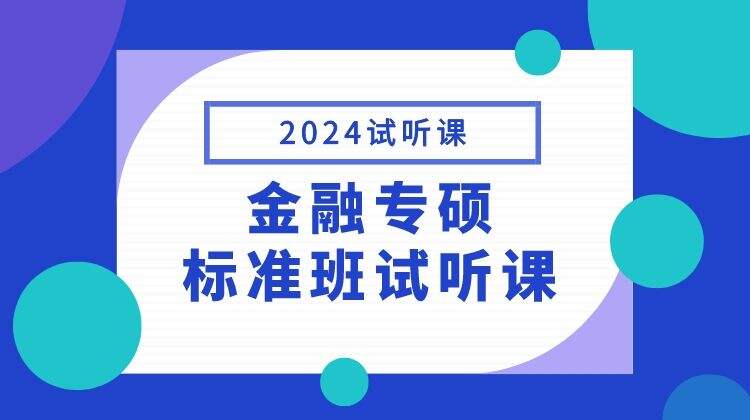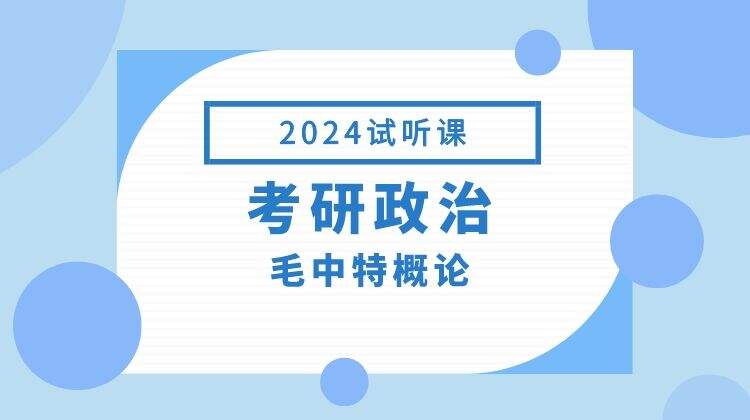考研英语一新题型是不是任意选一个?历年分布如何?考研英语一是学硕很多同学要考的,其中,新题型是一定要做的,至于做哪一种,是不可知的,今年是这一种,明年是那一种,但是也逃不了三种类型,详细来看历年分布。

一、考研英语一新题型是不是任意选一个?
考研英语一新题型不是任意选一个,每年随机的,你只能被动做其中一种,且考前不知道题型。新题型有7选5题型、5选5排序题、小标题三种类型,出现频次最高的是排序题,其次是七选五,最后是小标题。
历年英语一新题型出现频次如下:
英语一
2021年:七选五
2020年:小标题
2019年:排序题
2018年:排序题
2017年:排序题
2016年:小标题
2015年:七选五
2014年:排序题
2013年:七选五
2012年:七选五
2011年:排序题
2010年:排序题
由上图可知,历年出现最多的题型是排序题,然后是七选五,需要重点复习。
二、排序题是怎样的?
排序题试题如下参考:
2019年考研英语一排序题试题:
Part B
Directions:
The following paragraphs are given in a wrong order.For Questions 41-45,you are required to reorganize these paragraphs into a coherent article by choosing from the list A-G and filling them into the numbered boxes.Paragraphs C and F have been correctly placed.Mark your answers on ANSWER SHEET.(10 points)
[A]These tools can help you win every argument-not in the unhelpful sense of beating your opponents but in thebetter sense of learning about the issues that divide people.learning why they disagree with us and learning to talk and work together with them.If we readjust our view of arguments–from a verbal fight or tennis game to a reasoned exchange through which we all gain mutual respect,and understanding---then we change the very nature of what it means to“win”an argument.
<B>Of course,many discussions are not so successful.Still,we need to be careful not to accuse opponents of badarguments too quickly.We need to learn how to evaluate them properly.A large part of evaluation is calling out bad arguments,but we also need to admit good arguments by opponents and to apply the same critical standards to ourselves.Humility requires you to recognize weakness in your own arguments and sometimes also to accept reasons on the oppsite side.
[C]None of these will be easy but you can start even if others refuse to.Next time you state your position,formulate an argument for what you claim and honestly ask yourself whether your argument is any good.Next time you talk with someone who takes a stand,ask them to give you a reason for their view.Spell out their argument fully and charitably.Assess its strength impartially.Raise objections and listen carefully to their replies.
[D]Carnegie would be right if arguments were fights,which is how we often think of them.Like physical fights,verbal fights can leave both sides bloodied.Even when you win,you end up no better off.Your prospects would be almost as dismal if arguments were even just competitions-like,say,tennis games.Pairs of opponents hit the ball back and forth until one winner emerges from all who entered.Everybody else loses.This kind of thinking is why so many people try to avoid arguments,especially about politics and religion.
[E]In his 1936 work How to Win Friends and Influence People,Dale Carnegie wrote:"There is only one way...toget the best of an argument-and that is to avoid it."This aversion to arguments is common,but it depends on a mistaken view of arguments that causes profound problems for our personal and social lives-and in many ways misses the point of arguing in the first place.
[F]These views of arguments also undermine reason.If you see a conversation as a fight or competition,you canwin by cheating as long as you don’t get caught.You will be happy to convince people with bad arguments.You can call their views stupid,or joke about how ignorant they are.None of these tricks will help you understand them,their positions or the issues that divide you,but they can help you win-in one way.
[G]There is a better way to win arguments.Imagine that you favor increasing the minimum wage in our state,and I do not.If you yell,“Yes,”and I yell.“No,”neither of us learns anything.We neither understand nor respect each other,and we have no basis for compromise or cooperation.In contrast,suppose you give a reasonable argument:that full-time workers should not have to live in poverty.Then I counter with another reasonable argument:that a higher minimum wage will force businesses to employ fewer people for less time.Now we can understand each other’s positions and recognize our shared values,since we both care about needy workers.
41.→42.→F→43.→44.→C→45.
参考答案
Part B
本篇新题型属于排序题。文章主题是对如何进行一个有效的辩论进行探讨。
41、【答案】E
【解析】快速浏览选项,F和C段为已知段。现在要确定的是剩下的段落哪一段可以作为段首。G段落开头为there is a better way...出现一个比较级,说明是和前面的一个方法相比较,因此不能做段首;A段落these tools开头,出现代词,不能组为段首;B段落many discussions are not so successful,出现词汇so,为代词,指代上面说的successful discussion,因此不能做句首;这样只剩D和E段落,D段落开头Carnegie would be right if...,这里出现了对人物观点进行正确与否的判断,判断正确与否的前提是首先要提到此人的存在以及其观点具体是什么,所以D段落不能为段首,因此此题答案为E。实际上,纵观全文,本段是以Carnegie的观点为为切入,然后通过分析Carnegie观点,对有效辩论进行探讨。
42、【答案】D(Carnegie would be right if arguments were fights.....)
【解析】首段提及到Carnegie以及他书中的观点,根据人物线索,本题优先选择出现人物复现的段落,浏览剩余的段落发现只有选项D出现了Carnegie这个人。对这两个选项稍加分析得知,第一段论述了Carnegie书中的观点,D选项论述作者对此观点的评论,符合立论型文章的篇章结构。再者,根据已知段落F句首出现的代词指代线索也能得出答案。F首句提到These views of arguments与D段落尾句中的this kind of thinking为同义复现,因此D为正确答案。
43、【答案】G(There is a better way to win arguments.)
【解析】该选项位于F项之后,F段最后一句“but they can help you win-in one way”中有“help you win-in one way”,而G段首句“There is a better way to win arguments.”的“a better way to win”是对“help you win-in one way”的进一步说明。因此G段则接着F段。
44、【答案】B(Of course,many discussions are not so successful.)
【解析】本题位置为C的上一段。所以我们只需找到一段的尾句可以与C段首句进行关联即可。C段的第一句话:None of this will be easy...others refuse to...,句意为这样不容易,即使别人拒绝,但你可以开始...下文继续提到从反方面来对待你的观点。不难发现B项最后一句话提到了recognize weakness...accept...on the opposite side...,此处opposite和refuse均为同义复现的替换词。此外,B项段尾是从心理上对待相反的论点,而C段中
state...ask...spell...assess等均为做出的行动。先有想法再付诸行动的顺序也符合了B在前C在后,所以正确答案为B。
45、【答案】A(These tools can help you win every argument......)
【解析】已知段落C段末尾两句话讲到Next time you state your position....Next time you talk with someone who....Assess its strength...。由此可知段落讲的都是一些帮助取得辩论胜利的做法技巧,这与A段落开头的These tools can help you win every argument构成了呼应,尤其是C段后Next time you talk with someone who与A段开头but in the better sense of learning about the issues...同时都在讲对于别人观点的看法。因此确定答案选A选项。
以上就是【考研英语一新题型是不是任意选一个?历年分布如何?】的全部内容,如果还想要了解更多相关内容,比如院校常见问题、专业问题、录取率问题、就业问题等还可以进入高顿考研频道查询,如还不能解决您的问题,可直接
下方【在线咨询】我们的老师↓,一对一解答更专业!
展开全文
版权声明:本条内容自发布之日起,有效期为一个月。凡本网站注明“来源高顿教育”或“来源高顿网校”或“来源高顿”的所有作品,均为本网站合法拥有版权的作品,未经本网站授权,任何媒体、网站、个人不得转载、链接、转帖或以其他方式使用。 经本网站合法授权的,应在授权范围内使用,且使用时必须注明“来源高顿教育”或“来源高顿网校”或“来源高顿”,并不得对作品中出现的“高顿”字样进行删减、替换等。违反上述声明者,本网站将依法追究其法律责任。 本网站的部分资料转载自互联网,均尽力标明作者和出处。本网站转载的目的在于传递更多信息,并不意味着赞同其观点或证实其描述,本网站不对其真实性负责。 如您认为本网站刊载作品涉及版权等问题,请与本网站联系(邮箱fawu@gaodun.com,电话:021-31587497),本网站核实确认后会尽快予以处理。
考研热搜
-
考研英语阅读文章来自于哪里?从哪里出题? 高顿教育 2023-06-21 17:51:07

-
考研英语新题型有规律吗?哪一种出现的最多? 高顿教育 2023-06-21 17:43:54

-
考研英语新题型文章是不是比阅读简单一点?含做题技巧 高顿教育 2023-06-21 17:36:43

-
考研英语长难句零基础怎么学好?从哪里开始? 高顿教育 2023-06-21 17:35:24

-
考研复试英语口语自我介绍怎么说?说几分钟? 高顿教育 2023-06-21 17:26:08

-
考研英语二可以调剂到英语一的专业吗?为什么? 高顿教育 2023-06-21 17:21:23

考研


证书星级










距离考研考试仅剩
天
全国硕士研究生统一招生考试,简称“考研”。是指教育主管部门和招生机构为选拔研究生而组织的相关考试的总称,由国家考试主管部门和招生单位组织的初试和复试组成。是一项选拔性考试。思想政治理论、外国语、大学数学等公共科目由全国统一命题,专业课主要由各招生单位自行命题(加入全国统考的学校全国统一命题)。硕士研究生招生方式分为全日制、非全日制、中外合办等。培养模式分为学术型硕士和专业型硕士研究生两种。
加载更多 













